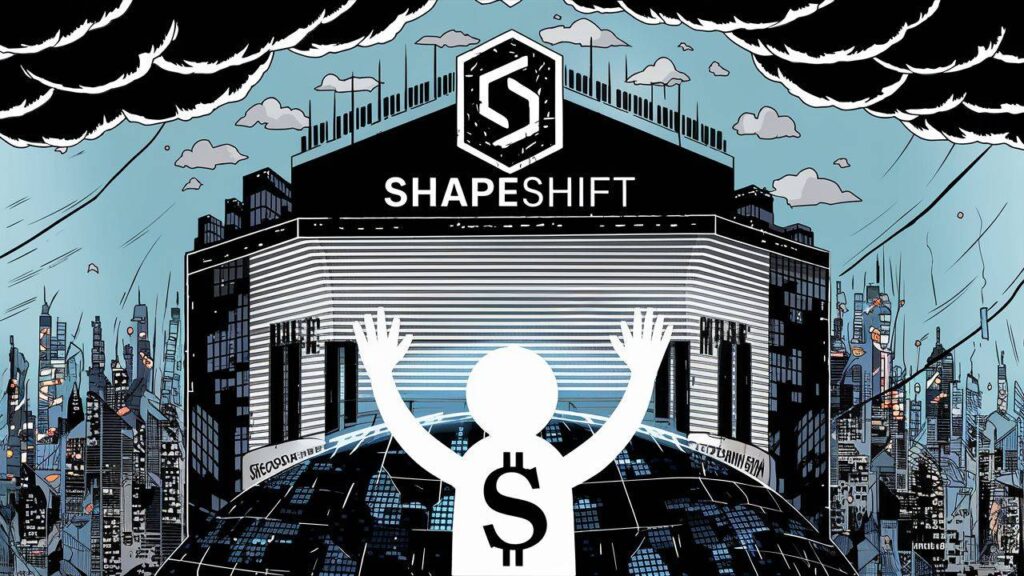
ShapeShift, a defunct cryptocurrency exchange, settles SEC charges of selling illegal securities.
Founded by Erik Voorhees in 2014, ShapeShift transitioned to a non-custodial, decentralized format in 2018.
A cease-and-desist order and a $275,000 fine have been agreed to by cryptocurrency platform ShapeShift, which shut down operations in 2021, in response to claims made by the U.S. Securities and Exchange Commission (SEC) that it let users to trade digital tokens without registering as a broker or exchange.
The SEC’s years-long inquiry into whether ShapeShift’s actions broke federal securities laws was resolved by the settlement, which was made public on Monday.
The former cryptocurrency exchange is accused of facilitating the acquisition and selling of digital assets that were investment contracts and, as such, securities that ShapeShift had not legally registered to trade. The SEC’s lawsuit centers on ShapeShift’s activities from July 2017 to November 2019.
The SEC said that among the cryptocurrency assets that ShapeShift provided were those that were marketed and sold as investment contracts, or securities. “ShapeShift never operated under any exception or exemption from registration or registered as a dealer with the Commission.”
As to the SEC, ShapeShift was formerly a very active participant in the cryptocurrency market, despite its demise.
The federal agency claims that “at its peak, the ShapeShift platform allowed customers to effect exchanges of at least 79 crypto assets.” By acting as the counterparty to each transaction, ShapeShift functioned as a marketmaker for these assets and positioned itself as a virtual currency “vending machine.”
CEO Erik Voorhees founded ShapeShift in 2014; it was based in Denver, Colorado, and registered in Switzerland. The exchange’s original “no-KYC” (Know Your Customer) policy, which is a component of common Anti-Money Laundering (AML) procedures in the financial sector, let users to purchase and sell digital assets without opening an account or divulging personal information.
This strategy, however, was met with criticism. The Wall Street Journal revealed in November 2018 as part of a larger probe into the illegal usage of cryptocurrencies that ShapeShift had handled over $9 million from alleged criminal groups over a two-year period—“more than any other exchange with U.S. offices.”
In the same month, ShapeShift introduced its own currency and delisted privacy currencies Monero, Dash, and Zcash, citing pressure from regulators for the decision. This came after the exchange disrupted the industry earlier that year by moving toward open-source principles and becoming a decentralized service that did not store digital assets for its users.
Voorhees said in a blog post at the time, “Shift was the market maker and counterparty to user trades, to enable swaps in a frictionless way.” “In my opinion, this clearly constitutes an unreasonable search without probable cause and pulls us into the category of a ‘financial institution,’ subjecting us to regulations that are incompatible with protecting users’ privacy and security interests.”
According to the SEC, ShapeShift stated on July 14, 2021, that it was dissolving its corporate organization. The SEC further states that the company does not presently have any full-time workers or income.
Sen. Elizabeth Warren brought up ShapeShift last year during a national policy discussion about cryptocurrency, even though the company is no longer in operation. Warren was advocating for a measure that would impose more controls on the digital asset market.
“There are those in the cryptocurrency space who argue that laws prohibiting money laundering are only effective if they exclude “decentralized entities.” Put another way, they want a huge legal loophole for DeFi to be incorporated into the law, allowing them to launder money anytime a terrorist or drug lord pays them to do so,” said Warren. “That is precisely what ShapeShift, a cryptocurrency exchange with headquarters in Colorado, did when it purposefully reorganized as a DeFi platform.”
The declaration, according to the senator, is an invitation to “launder your money here.”
ShapeShift retreated.
The business said on Twitter, “ShapeShift never handles user funds, therefore has no ability to facilitate this.” “A ShapeShift is not a swap.”
On Valentine's Day, @SenWarren attempted to use ShapeShift as an example to push her latest crypto bill.
— ShapeShift 🦊 (@ShapeShift) February 18, 2023
Unfortunately, there were mistakes in the Senator's analysis, and we'd like to take the opportunity to set the record straight 🧵
“Sincerely, we are concerned with the same issues as Senator Warren: innovation access (DeFi, not CeFi) and user safety (self-custody needed),” ShapeShift said. “We believe in creating a product that enables financial freedom for all humans worldwide. We also care about mutual understanding.”
Currently available as a browser-based cryptocurrency wallet, ShapeShift bills itself as “The best Multichain experience for MetaMask.”

